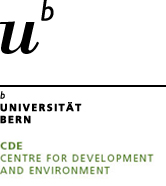Mountains

Mountain regions are crucial to sustainable development worldwide. They are home to over 900 million people and supply humans and nature with vital resources both locally and in nearby lowlands. About half of Earth’s fresh water comes from mountains. Mountains also serve as a unique reservoir of biological diversity and cultural values.
Today, the sustainable livelihood base in many of these regions is threatened by direct and indirect human impacts. Local, national, and international policymakers should address these challenges in earnest, striving to develop specific solutions for mountain regions. Science also has a key role to play in this effort, as mountain-specific knowledge is often only available in fragmented form.
Research focuses and important networks
Since its inception, CDE has conducted research for sustainable development in mountain regions, including in the Swiss Alps, the Mount Kenya region, the Andes, the Himalayas, and – for many years – in the Caucasus. Its focus is on the following research topics:
- Co-production and exchange of knowledge on sustainable development in mountain regions
- Accompanying research and monitoring for the UNESCO World Heritage Jungfrau-Aletsch as well as numerous nature parks in Switzerland
- Research on collective bodies (commons) such as traditional irrigation systems
- Biocultural diversity
- Value chains of agroforestry products
- Design, facilitation, and evaluation of multi-stakeholder processes for sustainable development in mountain areas
Besides its research activities, CDE is strongly engaged in networks in and around mountain areas, for example the Forum Landscape, Alps, Parks (FoLAP) of the Swiss Academy of Sciences.
Both, the Mountain Research Initiative (MRI) and the editorial team of the scientific journal Mountain Research and Development (MRD) are based at CDE.
The UNESCO Chair on Natural and Cultural Heritage for Sustainable Mountain Development is held jointly by CDE and CETRAD, its partner in Kenya.
PUBLICATIONS
Journal
Mountain Research and Development (MRD)
Sustainable Mountain Development Series
Vibrant Mountain Communities: Regional Development in Mountains
Migration and Sustainable Mountain Development
Shaping the water–energy–food nexus for resilient mountain livelihoods
Leaving no one in mountains behind
CDE Working paper
Challenges and opportunities in assessing sustainable mountain development
Insights - Outlooks
Serie on developments in the Jungfrau-Aletsch World Heritage region
